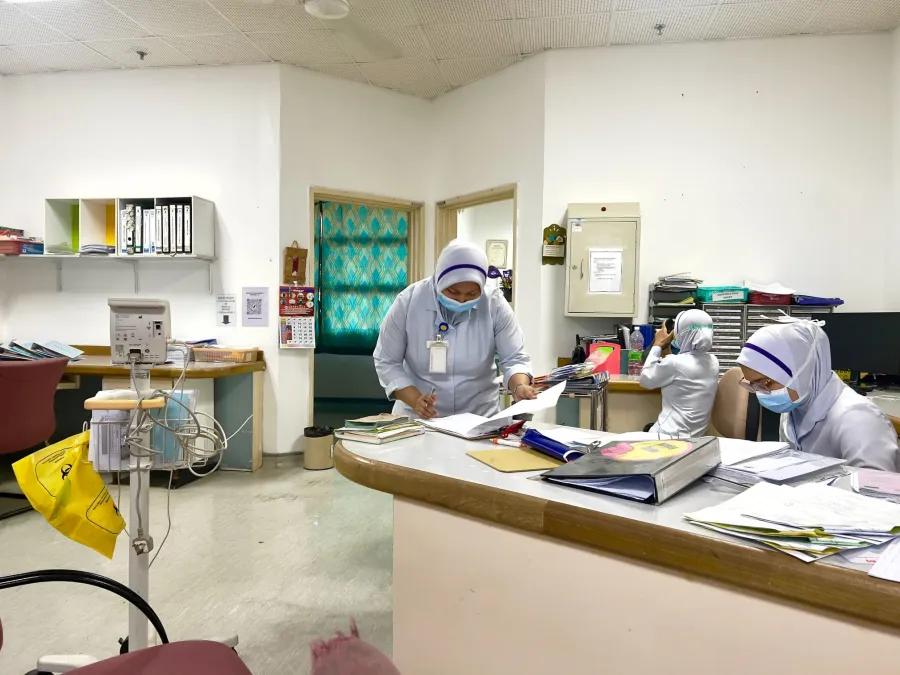Addressing the Shortage of Nurses in Malaysia
MOH’s decision to allow private hospitals to hire foreign nurses will provide some relief to our health care system, but it could raise health care costs. Offering foreign nurses competitive packages may also lead to pay disparities with local nurses.

Staff nurses at Selayang Hospital’s postnatal ward. Once a first class ward, it now serves as a ward for post-delivery care after the Covid-19 pandemic.
Photo by Saw Siow Feng, taken on July 16, 2023.
I am writing in response to the recent report published on CodeBlue titled “MOH now allows foreign nurses to work in Malaysia” dated September 11, 2023.
As a lecturer in nursing at Sunway University, I would like to share my insights on this matter.
In 2021, Malaysia saw a commendable rise in its registered nursing workforce, with over 115,000 professionals in the field. This growth is a continuation of the upward trend we’ve observed since 2016.
However, despite this growth, our nation is grappling with a significant nursing shortage. This shortage has led to delays in health care services and has placed immense pressure on our existing nurses, affecting the quality of patient care.
Why are we facing this shortage? Two primary reasons stand out:
Supply and Demand Imbalance: Post the Covid-19 pandemic, there’s been a noticeable drop in young individuals pursuing nursing. Many of those who do are motivated by opportunities abroad, rather than a genuine passion for the profession.
Overseas Employment: Many Malaysian nursing graduates are enticed by foreign job offers that come with numerous benefits, from attractive salaries to extended annual leaves. This has resulted in a significant portion of our nursing talent seeking opportunities abroad.
Given this backdrop, the Health Ministry’s recent decision to recruit foreign nurses, as highlighted in the report, is a welcome step.
This move will undoubtedly provide some relief to our health care system. However, it’s essential to consider the potential implications. While foreign nurses might ease the current strain, this could lead to increased health care costs.
Moreover, offering competitive packages to foreign nurses might inadvertently affect the morale of our local nurses due to potential pay disparities.
It’s imperative for key stakeholders, including the Malaysia Nursing Board, the Malaysian Nursing Association (MNA), and the Association of Private Hospitals of Malaysia (APHM), to deliberate on this matter.
While ensuring patient safety is paramount, we must also strategise on retaining our local talent.
From the vantage point of Sunway University’s School of Medical and Life Sciences, we are intensifying our efforts to train more nurses at various levels.
The nursing profession offers immense job satisfaction and is in high demand, especially considering our aging population.
In conclusion, while the inclusion of foreign nurses is a step in the right direction, a holistic approach is needed to address the broader challenges in our health care system.
Harjit Kaur Ujagar Singh
School of Medical and Life Sciences
Email: @email
This article was first published in Code Blue, 21 September 2023.



